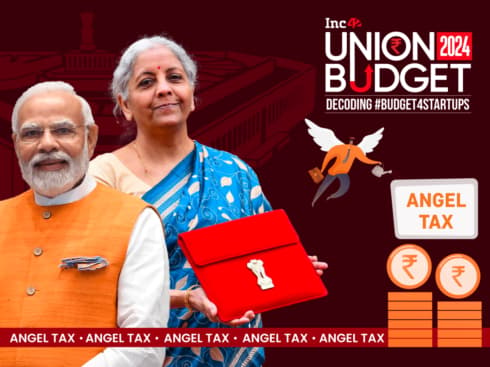
Daily consumption of online content has doubled since the pandemic started
Livestreaming of movie premieres, sporting events and live news have helping OTT platform get more eyeballs
There is a growing demand for vernacular language content
In the times we live in, people are wary of stepping out and are instead seeking entertainment options within the safe comforts of their homes. While this has adversely affected many brick-and-mortar players, those on the OTT platform have hit upon a potential goldmine.
Of course, this trend did not come unannounced. While the pandemic no doubt fueled the growth of OTT, the platform had been seeing a healthy surge in audience numbers even before the pandemic struck. The OTT market had grown by 15% in 2019, in the pre-lockdown era.
So, what’s all the fuss with OTT?
The over-the-top platform, popularly referred to as ‘OTT’, is revolutionizing the dynamics of entertainment, media consumption and viewing experiences like never before.
OTT’s USP is that it can offer everything that cable and broadcast can with the added built-in flexibility of letting users watch content anytime, anywhere and on any device
OTT video transmits video content over the internet. Not only is the platform challenging the traditional methods of broadcasting, including satellite and cable television, but also setting newer and better standards each day for media companies and marketers competing in the field of internet-driven entertainment.
Bringing together the data of the mobile app, console app and website onto one common platform helps brands add a layer of intelligence to their engagement efforts. Thus, they will be able to arrive at better predictions and create a smooth and seamless experience for users.
The global OTT market is expected to touch $167 billion in revenue by 2025, doubling from $83 billion in 2019.
Top trends shaping the OTT market
This article examines the top trends shaping the future of the OTT platform, so marketers can equip themselves to capture a larger share of the growing audience through better technology such as AI and data analytics.
Rise of website adoption
A study by media measurement company DoubleVerify reported that daily consumption of online content worldwide has doubled since the start of the pandemic to 6 hours 59 minutes. While this number may seem excessive and not sustainable in the long run, there is no doubt that people have gotten used to consuming entertainment at the click of a button.
A significant part of the consumption is through the brand website, which is the primary touchpoint for customers.
Marketers must capitalize on this by offering a superior experience for website users. This can be done using advanced automation tools. Brands must invest resources into creating personalized and relevant website banners and messages.
Marketing exercises such as rewarding users who visit a certain page often, directing users to relevant pages based on demography, and intent-based optimization are great ways to lure users to come back for more.
Live streaming on OTT content
Though a chunk of OTT content is still video on demand (wherein viewers pay for pre-recorded and uploaded content), the repertoire is fast expanding beyond TV shows and movies, making space for live content that’s edgy, enticing and real-time.
Livestreaming of movie premiers, award shows such as the Oscars, and sporting events such as the Olympics and live news have helped OTT platforms garner eyeballs and boost brand stickiness. Hotstar as a brand has utilized the medium’s versatile features to its advantage.
Adding game streaming features will provide marketers with more avenues of engagement with customers. For example, the Twitch video streaming platform provides a cool place for users to watch other people play games, interact with other viewers, and Livestream their gaming to the world at large.
Personalization of content on the website
Personalized offers, intent-based actions, and relevant pop-ups and suggestions help marketers with more successful leads and also get closer to customers.
They aim to get answers to questions like what motivates customers and what are their needs and concerns? It is not easy to make people move from Point A to Point B and it takes a long time to comprehend customers’ goals and what makes them happy and grow brand revenues.
To make the content more relevant, brands have to collect real-time analytics, analyze viewing patterns, and build a prediction system by orchestrating the customer journey. OTT brands can create customer segments based on factors such as director, cast, production house, genre, language and music director and personalize their communication to users accordingly, based on their preferences.
Connected TV is on the rise
The latest trend is the rise of the connected TV market that has shown impressive adoption rates. Estimates point out the number of households gaining from this technology is set to increase by 82% by 2023.
Studies predict that the proportion of households cutting the cord with traditional cable media will rise by 44% over the same period.
This establishes two key takeaways for OTT service providers delivering content via TV, a games console or a plug stick: Increasing reach through linear TV extension campaigns leading to a higher level of engagement and advertisers seeking to earn more viewers’ time.
Localized content: Global going glocal
Growth in the global OTT market will fuel the demand for content localization and vernacular content in local languages. This can be met with through services such as dubbing, subtitling, translation and audio descriptions.
A classic case in point is the Spanish heist drama La Casa de Papel (Money Heist), which has been subtitled and translated into several languages. It became the most in-demand title in the world on Netflix during April 2020, beating popular shows such as Game of Thrones and Brooklyn Nine-Nine.
In India too, OTT platforms such as Airtel XStream, Hotstar and Voot stream original content in vernacular languages, which is hugely popular among viewers. The market for vernacular content is only set to explode in the coming months.
The global localization industry has grown up to 40% in the last three years and is expected to surpass $2.5 billion by 2021. OTT content localization will be the cornerstone of its growth.
With international OTT players facing competition from regional content creators, they have to localize more and more content, as per the preferences of the regional language audience to cover the length, breadth, and depth of the market and be relevant and competitive. International brands can partner with local production houses to stream existing vernacular content or co-create original content.
Short-form user-generated content: A high adoption rate
Recently, short-form videos have taken over social media platforms by storm.
This will give brands a leg-up on the competition and help engage the audience. There is a rebirth of vines with Instagram reels and Tiktok videos slowly proving to be game-changers in the user-generated content (UGC) segment.
The influence of UGC is phenomenal given its reach and number of active users. For instance, the video app Tiktok, which is extremely popular among Gen Z users, is said to have been downloaded about 2 billion times globally. As of January 2021, the platform had 689 million monthly active users worldwide.
The upsurge of UGC presents a huge marketing and advertising opportunity for OTT brands, who can use the fresh voice of ‘regular’ people in new and exciting ways to drive conversations and engagement, as opposed to influencer marketing which comes with its set of dos and don’ts, including the need for disclosure.
Subscription fatigue is not a myth
In a market riddled with a plethora of options and choices, subscription fatigue is slowly but surely setting in. This has put the spotlight on the retention of customers, which has become more important than ever before. OTT brands must do all they can to ensure their subscribers are happy and frequent their service.
OTT brands must iron out basic issues such as buffering and stream lags and complex payment processes and navigation. They must also look at newer ways of monetizing both VOD and live event streaming. Apart from the SVOD (subscription video on demand) model, other strategies such as AVOD (advertising-based video on demand) and TVOD (transactional video on demand, which allows pay-per-view) are finding favour among OTT brands. All these will enhance the overall user experience and reduce customer churn and subscription fatigue.
It is clear that OTT is not only changing the content viewing experience but is also bringing families together and the world closer. The trend, which started a couple of years ago, has gained greater momentum and added many new features along the way – in the wake of the pandemic and also backed by new technologies.
There is no doubt that OTT has driven into a fast new lane. Are brands ready to step up their game?































 Ad-lite browsing experience
Ad-lite browsing experience